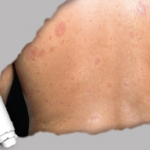Predicting a patient’s disease course is difficult, especially in SLE. A recent study examined the link between a patient’s 2019 EULAR/ACR SLE Classification Criteria score at diagnosis to subsequent disease severity, finding a score of 20 or more may predict a more severe disease course.









